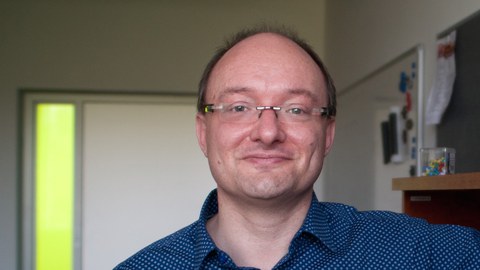Dec 05, 2017
Sebastian Rudolph receives ERC Consolidator Grant
Sebastian Rudolph, Professor at the Faculty of Computer Science, will be funded by the European Union through one of the well-endowed ERC Consolidator Grants. His project "A Grand Unified Theory of Decidability in Logic-Based Knowledge Representation" (DeciGUT) with a duration of five years and a total funding volume of 1.8 Mio € will investigate foundational principles of decidability of query answering over logically specified knowledge.
ERC grants, awarded by the European Research Council (ERC) are among the most prestigious European scientific awards with the purpose of supporting leading scientists in conducting visionary foundational research. In 2017, 329 ERC Consolidator Grants were awarded to European researchers across all disciplines. With 2538 proposals initially submitted, this amounts to a success rate of 13%.
Sebastian Rudolph is professor of Computational Logic and deals with the formal foundations of knowledge management as well as their application in today's information society. Among the biggest challenges in this area are the intelligent access to digital information as well as the automated composition of information from diverse sources. For these purposes, logical specifications of background knowledge - so-called ontologies - can be used together with automated reasoning techniques in order to enable a "meaning-aware" handling of data.
Unfortunately, reasoning in ontology languages of high expressivity is impossible to capture algorithmically – they are undecidable. Therefore, the quest for "good" ontology languages consists in identifying logical formalisms which are as expressive as possible, yet still decidable. Hitherto, the obtained results in this area have, however, been patchy and fragmented.
The goal of the DeciGUT project is the creation of a unified theory of decidability, which in turn will enable the definition of new, advanced ontology languages.
The project is of high relevance to diverse scientific fields like mathematical logic, artificial intelligence, and database theory with potentially far-reaching impact in areas such as semantic technologies and information systems.

